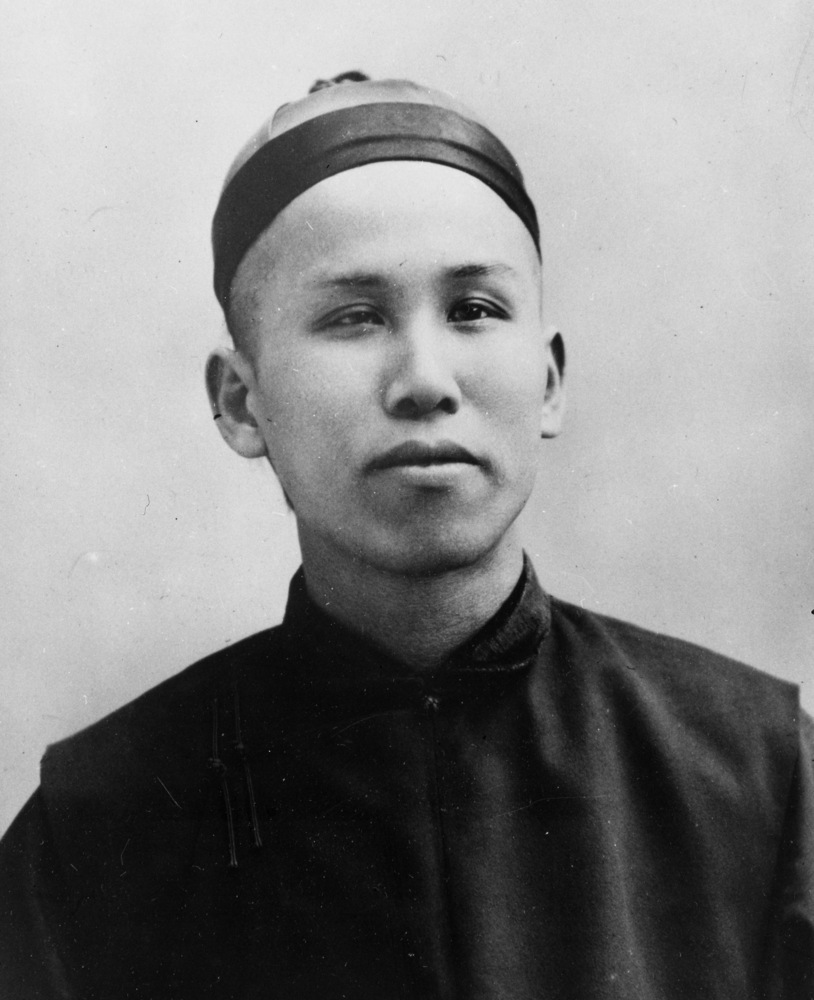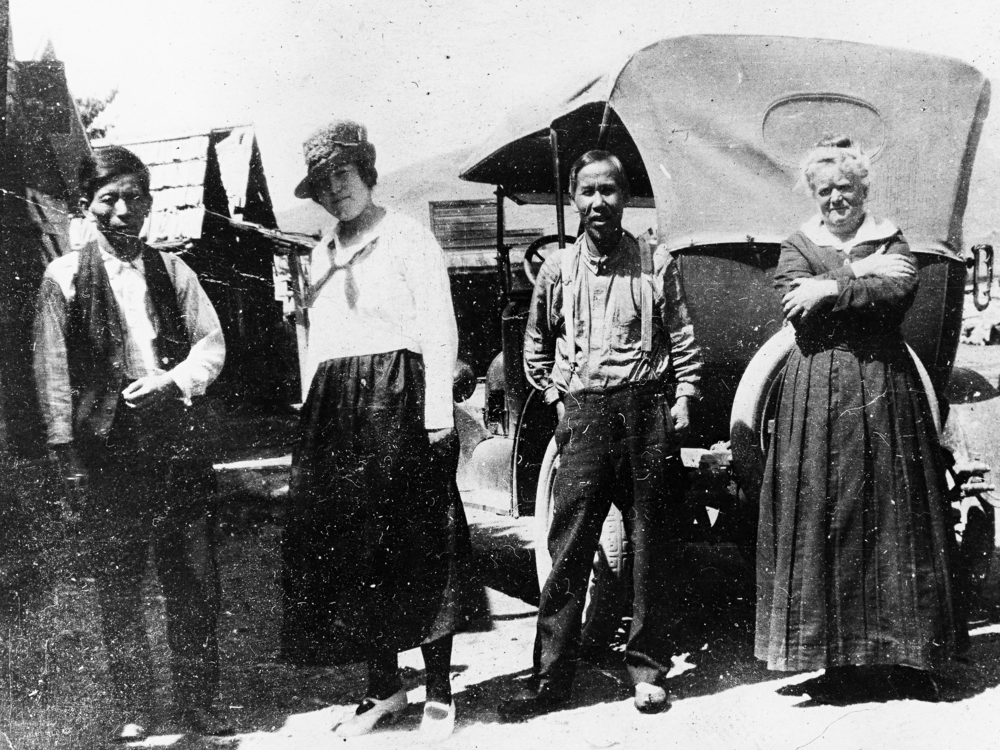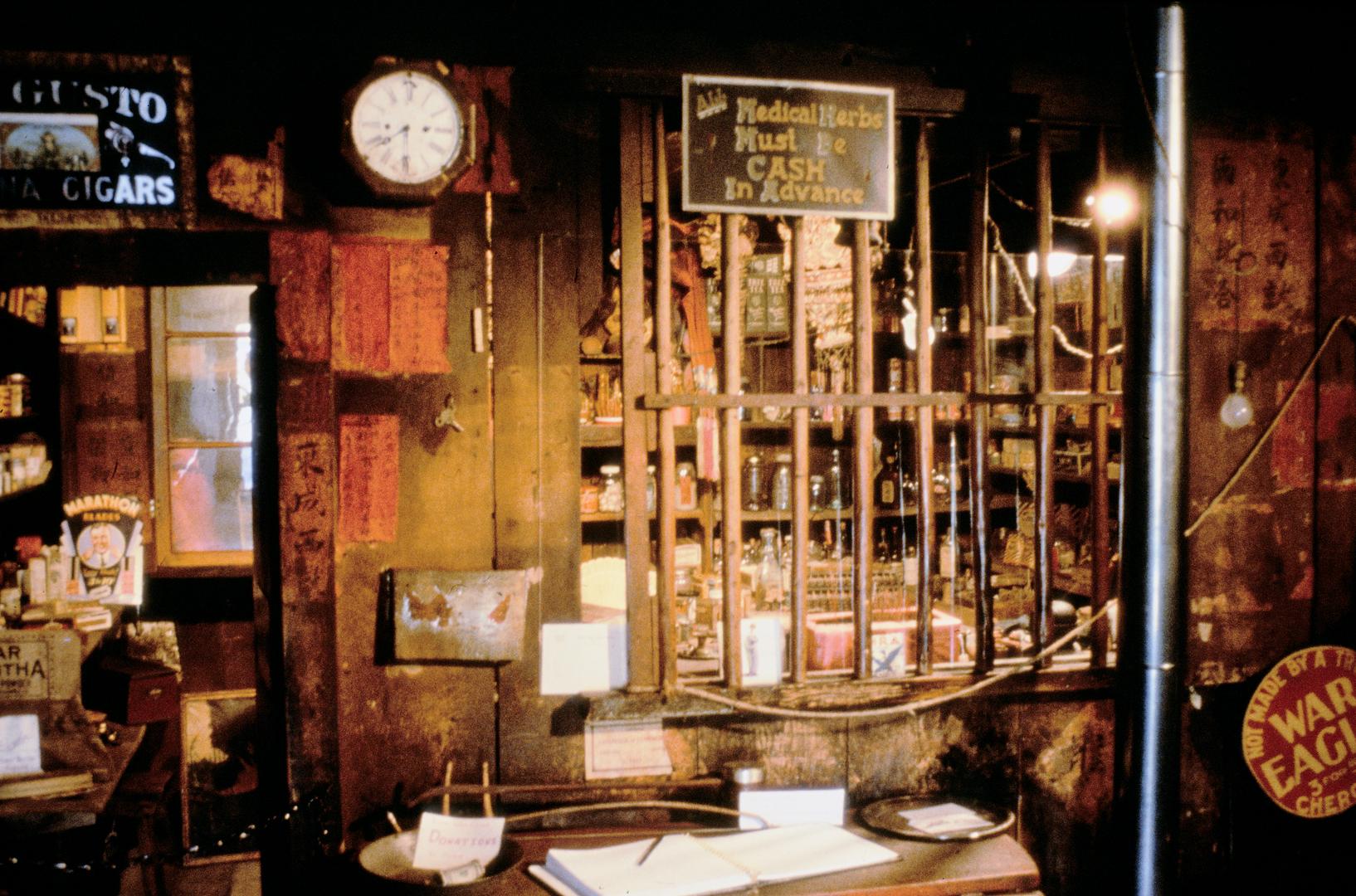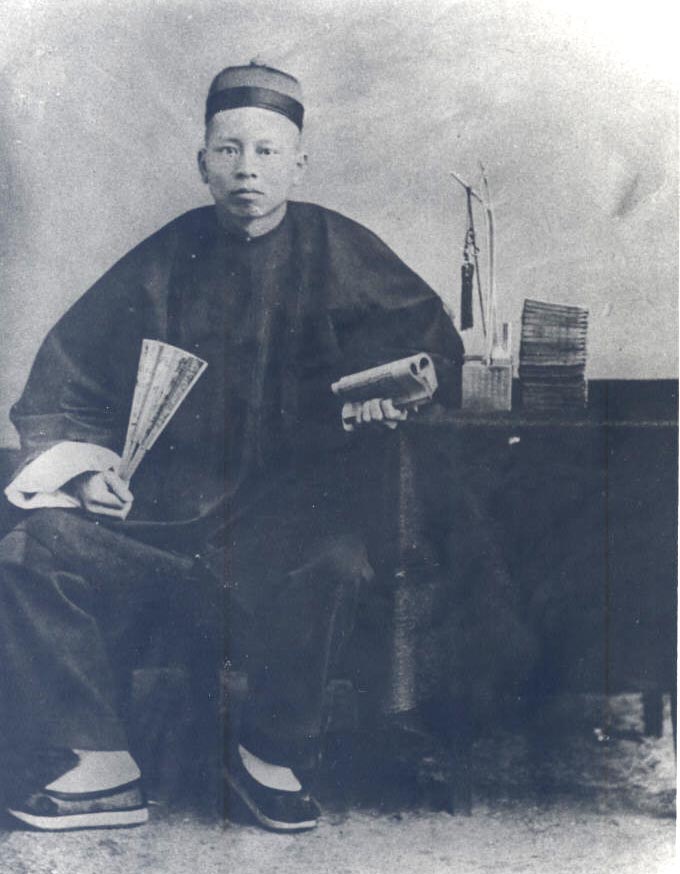Ing Hay (Wu Yunian), also known as Doc Hay, was a partner of Kam Wah Chung (Jin huachang) and Company in John Day from 1887 to 1948. Born in Guangdong Province, Toisan (Daishan) County, China, he emigrated first to Washington State, then to eastern Oregon in 1887. His immediate family remained in China, including his wife, a son, and a daughter, with whom he was never reunited.
Ing Hay practiced pulsology, a traditional Chinese method of diagnosis and treatment of ailments based on pulse signals. He also prescribed traditional Chinese herbal remedies at the Kam Wah Chung store and performed Buddhist rituals. His clientele included the many Chinese laborers who lived in Grant County and worked in nearby mining areas. After 1910, when most Chinese workers relocated, increasing numbers of non-Chinese patrons sought Ing Hay’s confidential treatments for a variety of ills. His gentle manner and his unorthodox treatments, as well as their success, made him a highly regarded and respected practitioner.
When influenza struck a highway construction crew near John Day in 1919-1920, Ing Hay reportedly administered tinctures and medicinal herbs (sometimes referred to as “Doc Hay’s sacks of bitter weeds”), thus cementing his reputation in the larger non-Chinese community. Chinese herbalists from Portland regularly consulted Ing Hay for his expertise, and his patients hailed from throughout Oregon and points as distant as Alaska and Oklahoma.
Ing Hay diagnosed and treated a wide variety of maladies, including blood poisoning, frostbite, Rocky Mountain spotted fever, infertility, venereal diseases, typhoid fever, gangrene, appendicitis, polio, and influenza. His herbal concoctions were steeped in broth or water, pulverized, or coated with oil or honey in a wok in the Kam Wah Chung’s kitchen. Some prescriptions contained in excess of sixty medicinal herbs, many of them purchased from San Francisco and Hong Kong herbalists.
Ing Hay was charged three times with practicing medicine without a license on accusations from local, non-Chinese doctors and a Portland couple, but the charges against him were dismissed each time. He was generous to the community, a quality demonstrated by the discovery at the time of his death in 1952 of over $23,000 in uncashed clients’ checks, some of them written during the Great Depression.
Letters from Ing Hay’s family in China were later found in the Kam Wah Chung, cataloguing the hardships they faced and asking for support. Chinese families were not allowed to immigrate because of restrictions imposed by the 1882 Chinese Exclusion Act. Though Ing Hay remained engaged with the politics of the emerging Republic of China and contributed money to the republic's founder Sun Yatsen, his response to his family is not known.
After the death of his business partner, Lung On, in 1940, Ing Hay’s nephew, Bob Wah, relocated in John Day to apprentice with Ing Hay. By that time, Ing Hay suffered from blindness and had organized the shop to help him negotiate the space. The Kam Wah Chung continued operation as an apothecary shop until it closed in 1948 due to Ing Hay’s failing health. Ing Hay died in 1952 in Portland; his remains are buried in the cemetery in John Day.
In 1955, the Kam Wah Chung building and its contents were deeded to the City of John Day to be used as an interpretive center and cultural museum at Ing Hay’s bequest. The Kam Wah Chung & Co. Museum in John Day archives some of Ing Hay’s correspondence, formulas, herbs, and apothecary supplies, as does the Oregon Historical Society.
-
![Ing Hay of Kam Wah Chang & Co.]()
Ing Hay, portrait, bb006126.
Ing Hay of Kam Wah Chang & Co. Oreg. Hist. Soc. Research Lib., bb006126
-
![Lung On & Ing Hay with unidentified women, John Day.]()
Lung On & Ing Hay, ba019843.
Lung On & Ing Hay with unidentified women, John Day. Oreg. Hist. Soc. Research Lib., ba019843
Related Entries
-
![Edward Wah (1931?-2008)]()
Edward Wah (1931?-2008)
Edward Eng Wah, D.M.D., practiced dentistry in both Portland and John D…
-
![Kam Wah Chung and Co.]()
Kam Wah Chung and Co.
The Kam Wah Chung and Company (Jin huachang ‘Golden Flower of Prosperit…
-
![Lung On (1863-1940)]()
Lung On (1863-1940)
Lung On (Liang Guanying, also known as Leon) was a partner with Ing Hay…
Related Historical Records
Map This on the Oregon History WayFinder
The Oregon History Wayfinder is an interactive map that identifies significant places, people, and events in Oregon history.
Further Reading
Chen, Chia-Lin, Kam Wah Chung Company Papers, John Day, Oregon. Portland: Oregon Historical Society, 1974.
Chen, Ying-Ju, and Jodi Varon, trans. “The Invisible Men of Gold Mountain.” In Talking on Paper: An Anthology of Oregon Letters and Diaries. Edited by Shannon Applegate and Terrence O’Donnell. Corvallis: Oregon State University Press, 1994.
Sarvis, Will. “Gifted Healer: Ing Hay and the Chinese Medical Tradition in Eastern Oregon, 1888-1948.” Journal of the West 44:3 (Summer 2005).
Yung, Judy, et. al. Chinese American Voices: From the Gold Rush to the Present. Berkeley: University of California Press, 2006.





